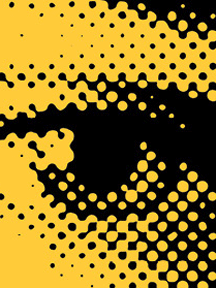By Scott Bartley
“Are we losing our humanity?” Arizona State University hosted a forum on September 7 at the National Press Club in Washington, D.C., to pose that question of nine panelists, including leaders in business and higher education. Phi Beta Kappa Secretary John Churchill was among them.
Our digital environment prompted the forum’s inquiry, but panelists also explored the effects of population growth, divisive political rhetoric, and religious and cultural intolerance. These topics, seemingly disparate, share the human struggle to make sense of an increasingly complex world. Can the humanities and technology offer mutual help?
Assessing the contribution of humanities, Churchill says, “Studying the liberal arts and sciences is supposed to enhance your humanity, allow you to realize more fully your potential as a human being. Well, what is that?” It’s clear that the question is not rhetorical. He wants earnestly to explore the potential of the liberal arts and sciences to animate what’s human in us. He perceives that the study of the humanities vitalizes the life of democracy, as one of its main contributions. The development of critical thinking and deliberative skills doesn’t just allow us to pick at an argument. More important, it opens our “appreciative capacities to enter into the perspectives and viewpoints of other people,” Churchill said. Then, when we’re confronted with an apparently unjustified perspective of another, we can ask in good faith, “How can he think that?”
Such appreciative capacities, however, don’t reach their full potential without our effort. Churchill asks, “How do you cultivate a capacity for sympathetic imagination, for entering into the narrative structures of other peoples lives?” He answers that “it’s philosophy and literature and history, when you come into contact with things people have actually believed and said, speeches they’ve made, and arguments they’ve made, and explanations they’ve given.”
The attempt to forestall communication technology’s inexorable advance would be in vain. So Churchill is not trying to reverse technology’s hold. The humanities, rather than reforming our modes of communication, should inform our modes of communication, bringing deliberate thought to every platform of expression. And the exchange can be mutual. Technology is reshaping the humanities, in many ways for the better. Churchill notes that technology has not only increased access to texts, but has also allowed scholars to work differently with texts. There are features of a text, he says, that “disclose themselves only to technological tools.”
Regarding the ASU forum and others like it, Churchill commented that “these forums are a great thing. I think there will be more of them.” And the next step “is to take these conversations to people whose decisions and opinions make an immediate practical difference in the support of humanities and liberal arts programs at colleges and universities. We’ve got to get out on the sidewalk and through the office doors of legislators, college and university trustees, members of state boards of higher education, and other people who are in the position to make decisions about how higher education is structured.” He says “that’s the kind of thing Phi Beta Kappa is going to try to do in the next couple of years.” When asked if he was hopeful, Churchill responded, “I am.”
Scott Bartley is a new member of Phi Beta Kappa from Amherst College where he earned a bachelor’s degree in English. Amherst is home to the Beta of Massachusetts chapter of Phi Beta Kappa.




